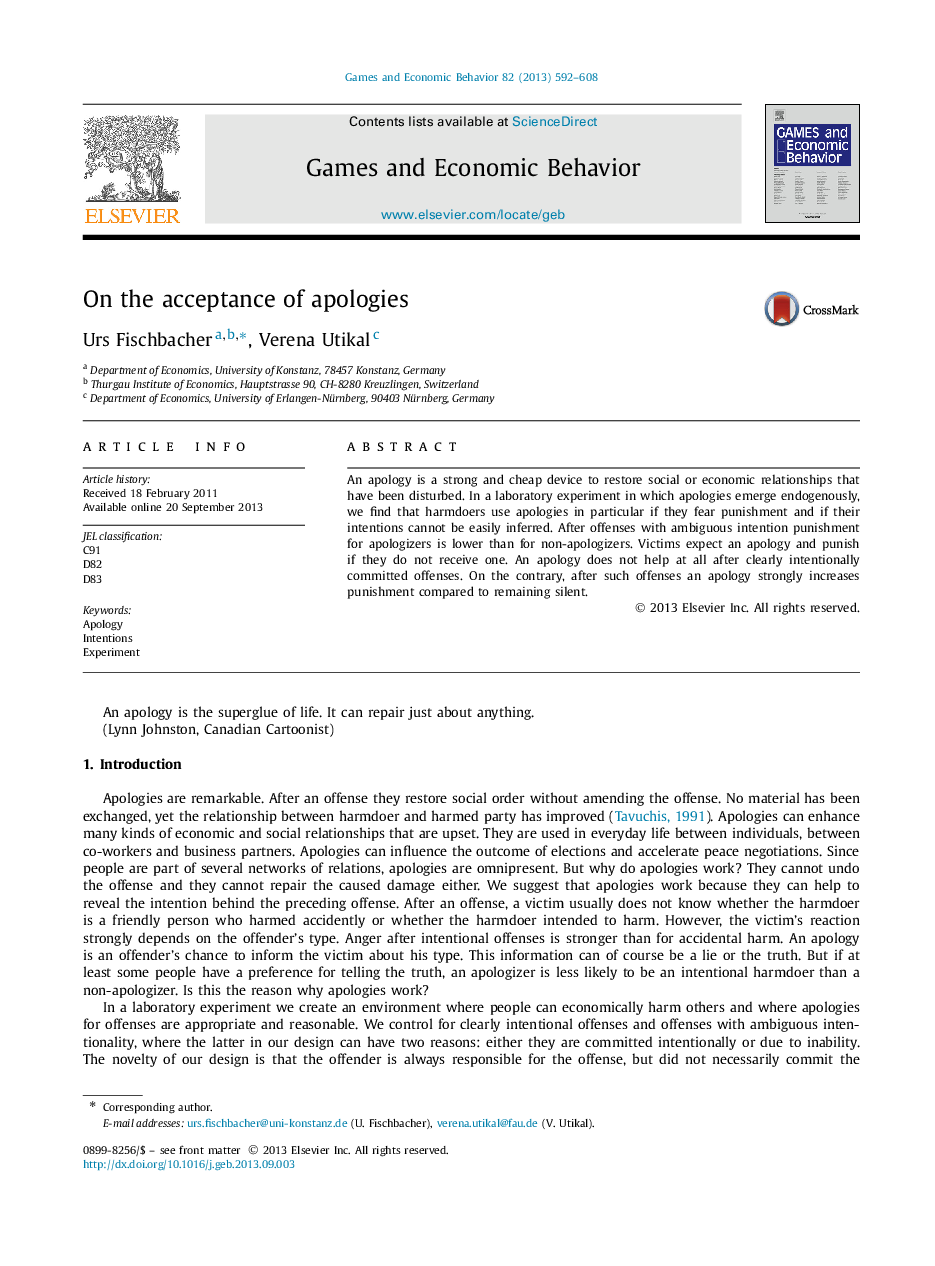| Article ID | Journal | Published Year | Pages | File Type |
|---|---|---|---|---|
| 5071788 | Games and Economic Behavior | 2013 | 17 Pages |
â¢Harmdoers who face possible punishment are more likely to apologize.â¢Harmdoers who face apology costs are less likely to apologize.â¢Harmdoers who have assignable negative intentions are less likely to apologize.â¢Apologies after ambiguously intentional offenses decrease punishment.â¢Apologies after clearly intentional offenses increase punishment.
An apology is a strong and cheap device to restore social or economic relationships that have been disturbed. In a laboratory experiment in which apologies emerge endogenously, we find that harmdoers use apologies in particular if they fear punishment and if their intentions cannot be easily inferred. After offenses with ambiguous intention punishment for apologizers is lower than for non-apologizers. Victims expect an apology and punish if they do not receive one. An apology does not help at all after clearly intentionally committed offenses. On the contrary, after such offenses an apology strongly increases punishment compared to remaining silent.
